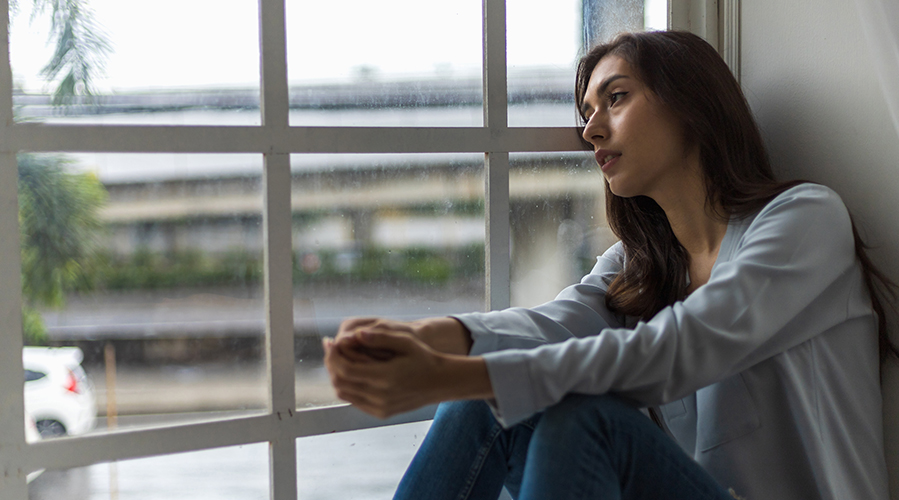With spring still weeks away and life months from a post-pandemic normal—if not longer—it’s understandable to feel a sense of isolation and sadness. According to a July 2020 poll from the Kaiser Family Foundation, about 4 in 10 adults in the U.S. have reported symptoms of anxiety or depression, up from 1 in 10 in 2019.
Seasonal Affective Disorder (SAD) is a form of depression that happens during the same season every year. Although most common in winter, SAD can affect people in any season. The condition happens when our circadian rhythm, or internal body clock, is disrupted because of a lack of exposure to daylight. This disruption can cause low energy, moodiness, and feelings of depression.
SAD Symptoms
Think about whether you’ve experienced any recent behavior changes. Signs may include:
- Oversleeping or having trouble falling or staying asleep.
- Eating too much or having a lack of appetite.
- Craving refined carbohydrates, especially sweets.
- Experiencing an increase in irritability, anxiety, or sadness.
- Feeling a strong sense of isolation or loneliness.
- Having a lack of interest in activities you normally enjoy.
Make Self Care a Priority.
Below are some ideas that may help.
- Get outside and get moving. Even a short walk can help you get natural daylight, which is especially important during the winter months. Even modest physical activity can increase your serotonin levels, giving your mood a boost.
- Take vitamin D. Many people are deficient in vitamin D. This deficiency can have a negative impact on mood.
- Watch your sleep. Getting enough sleep is a core part of feeling balanced. Try to go to bed and wake up at the same time every day, and make sure you minimize electronics an hour or so before bed.
- Try a melatonin supplement. Melatonin is a natural hormone our body produces to help regulate our circadian rhythm. Supplements can help short-term if you’re experiencing insomnia.
- Consider light therapy. Rain or snow outside? A light box is a great alternative. Widely available at a range of price points, light boxes may help reduce insomnia, increase productivity, and improve mood.
- Connect with friends and loved ones. If you’re feeling isolated, consider scheduling standing Zoom calls with friends and family.
- Meditate. Meditation can calm your mind and release any anxious thoughts. After meditating, many people feel more at peace and relaxed due to a rise in serotonin levels.
- Medication. In some cases, medication may also be needed to help treat SAD. Work with your doctor to find what’s right for you.
We’re Here to Help
If you feel overwhelmed by your symptoms or notice a major decline in your mental health, please know you are not alone. We can help.





